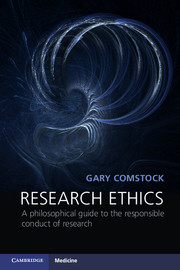1 - Report misconduct
Published online by Cambridge University Press: 05 February 2013
Summary
Fabricating, manipulating, changing, making up, falsifying, omitting: what do these verbs have in common? All are part of the Health and Human Services definition of research misconduct and all may be used, given the right context, as synonyms for cheating. As noted in Part A, the research community disapproves of cheating but an egoist need not if a particular act of cheating is in the egoist’s own best interests. So what reasons, if any, does an egoist have not to commit falsification or fabrication of data, or plagiarism?
To answer this question we must understand the complexity of the research context in which the egoist operates, and then ask how likely it is that an egoist’s actual interests will be served by surreptitious corner cutting in research. These are the goals of the next four chapters.
What is cheating?
According to the saying, it takes two to tango. It takes more than one to cheat, too, because cheating is a social act in which one person deceives another. Although we occasionally say that someone “cheats himself,” ordinarily cheating requires one who deceives and another who is deceived (Gert 2001). To deceive is to mislead or lie, to manipulate another’s expectations falsely and so to gain unearned benefits for oneself.
Not all acts of deception are objectionable. Some we not only enjoy but praise. When the basketball player Derrick Rose feints right, crosses over his opponent and drives left around him to the basket, he has definitely misled his defender. But he hasn’t cheated. Basketball rules encourage misdirection. If D. Rose sees that no official is in position to make a call and gains an advantage by touching the ball with both hands while dribbling it, his deception is now illicit because he has harmed others. That is cheating. But when he gains an advantage by deception within the rules he harms no one. His deception is legitimate.
- Type
- Chapter
- Information
- Research EthicsA Philosophical Guide to the Responsible Conduct of Research, pp. 39 - 57Publisher: Cambridge University PressPrint publication year: 2013



